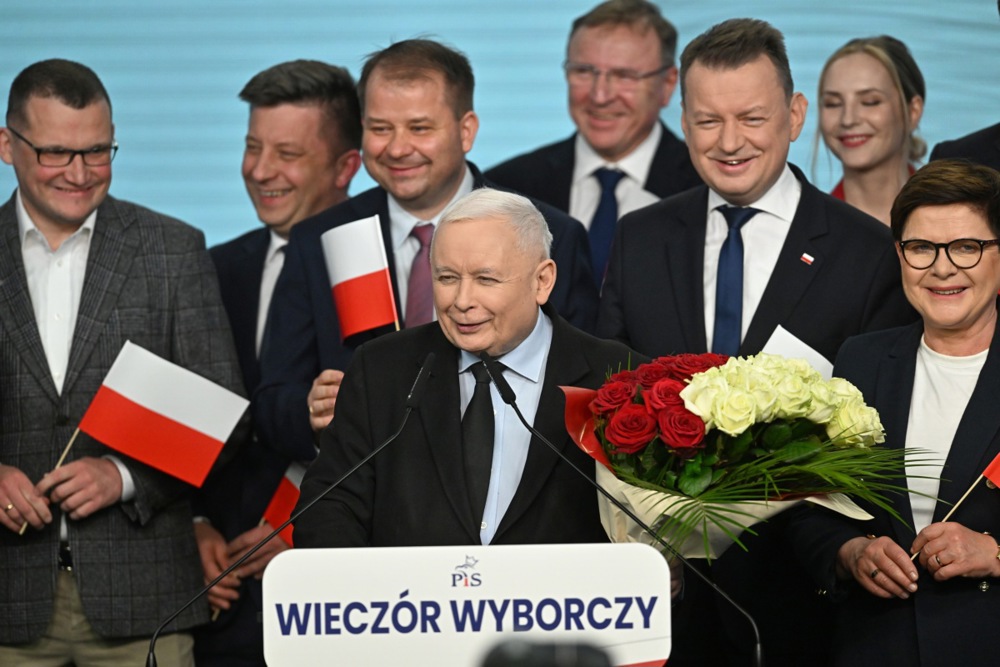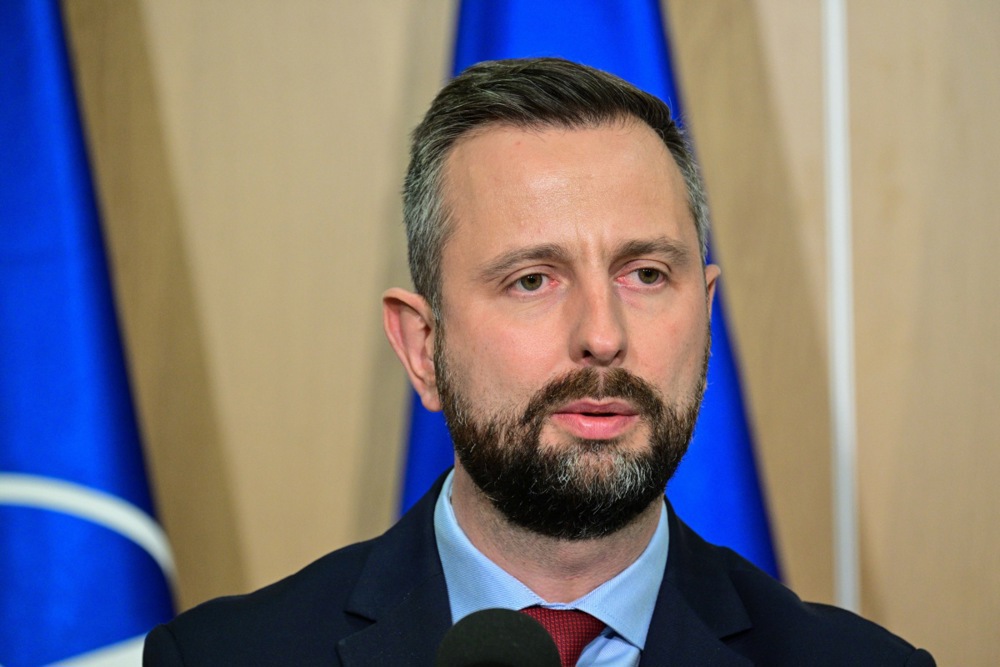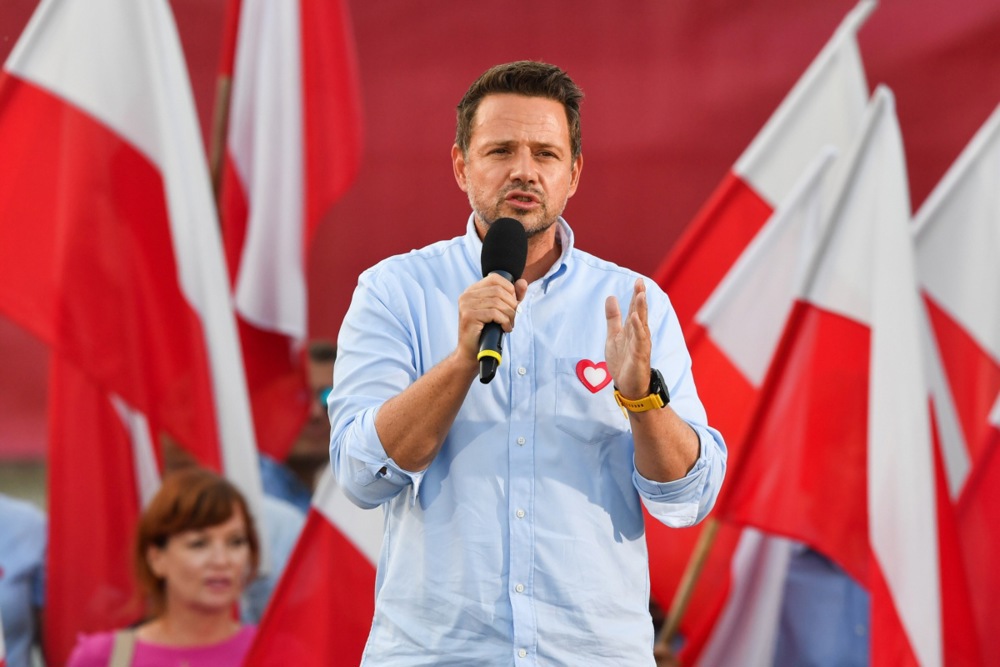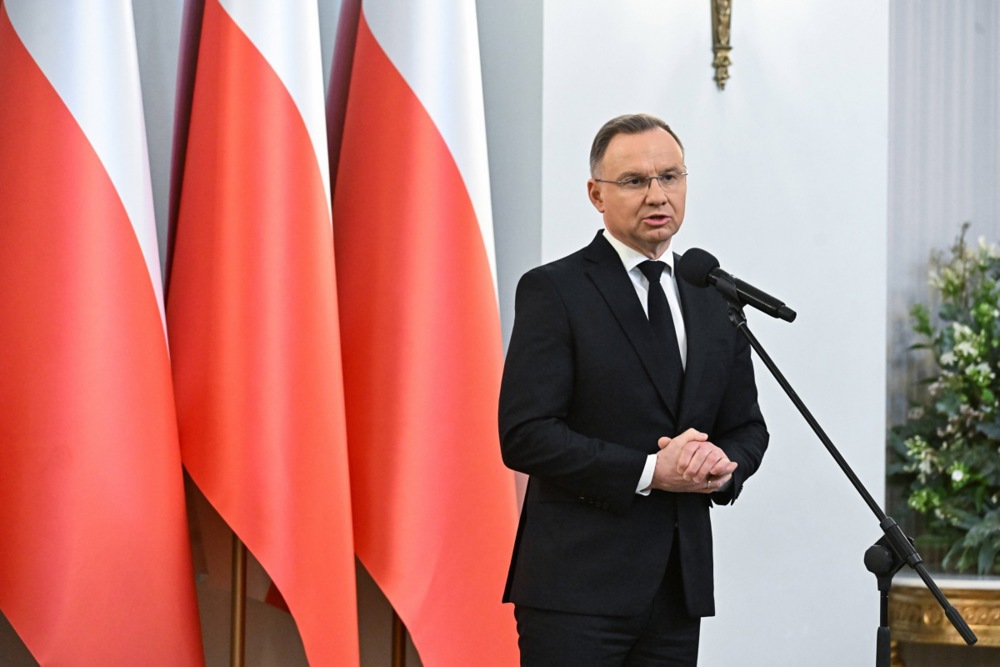Poland’s ruling centre-left government led by Prime Minister Donald Tusk was left reeling after revelations about negotiations on the formation of an alternative administration.
The discussions appeared to have been held by Szymon Hołownia, parliamentary Speaker and leader of one of the Tusk coalition’s parties, Poland 2050.
Hołownia’s move came in the wake of his refusal to countenance moves for invalidating June’s presidential election result. The ballot saw Karol Nawrocki of the opposition Conservatives (PiS) defeat Tusk’s candidate, Rafał Trzaskowski.
The Speaker was put under pressure by some in Tusk’s party to refuse Nawrocki the right to take the oath of office on August 6. That was on the grounds that the legitimacy of the Supervisory Chamber of the Supreme Court that validated the election was under question by both the Polish Government and the European courts.
The idea mooted by some in Tusk’s party was that Hołownia should take over as head of state in the absence of a validated election result. The intention was to help the coalition rush through its legislative programme before fresh presidential elections could be held.
Hołownia, whose Poland 2050 party held 32 seats of the ruling coalition’s 243 in the 460 seat parliament, has dismissed such notions as “planning a coup”. He has gone on record categorically stating that the election result stood and that Nawrocki would be sworn in as president next month.
On July 4, private broadcaster Radio ZET and Newsweek reported that Hołownia had met with the PiS leader Jaroslaw Kaczynski in a private apartment of that party’s prominent MEP Adam Bielan.
Holownia attempted to defuse media speculation, issuing a post on X saying: “The agitation and excitement” surrounding the meeting was “neither justified nor appropriate”.
He added: “I firmly believe that – especially in today’s climate, politicians from different sides should talk to each other, otherwise we’ll end up killing one another.”
The Speaker’s reported late-night meeting was slammed by Władysław Kosiniak-Kamysz, defence minister and leader of the Polish People’s Party (PSL).
“In politics, you need to make clear whose side you’re on,” he warned, adding: “Talking to Kaczyński at that hour isn’t normal consultation.”
Hołownia was also roundly criticised by some MPs in his party. One of them, Ryszard Petry, called a coalition “with PiS is out of the question”, while another, Tomasz Zimoch, was suspended by the party for accusing Hołownia of being a “traitor”.
The matter escalated on July 7 when it was revealed there had been other meetings between Hołownia and Kaczyński to discuss the potential of an alternative government being formed to remove Tusk from office.
Hołownia was accused by some in Tusk’s party of attempting to negotiate the prime ministership for himself or at the very least to ensure that he remained as Speaker of Parliament beyond November of this year.
He is then due to relinquish the role in favour of the leader of the Left party Włodzimierz Czarzasty.
Hołownia denied he was planning to leave the present ruling coalition but said he wanted to “invigorate it”. He also refused to apologise for meeting with opposition politicians.
“Talking to the opposition seems especially important now, when it’s necessary to determine whether, despite all the obvious differences, there are points we can agree on,” he said.
“Also what are the possibilities for co-operation with the opposition, including the new president, on issues critical for Poland such as the military, Ukraine, and relations with the US.”
He added that he would not be intimidated by insults and accusations of betrayal.
“So I repeat: Just as I speak with Tusk, Kosiniak-Kamysz, and Czarzasty, I have spoken and will continue to speak with president [Andrzej] Duda, president-elect Nawrocki and PiS leader Kaczyński.
“That’s how I do things, and that’s how I will continue to do them,” concluded Hołownia.
It had been expected that the most likely party to consider a coalition with PiS would be Kosiniak-Kamysz’s PSL because it was the most socially Conservative and least enthusiastic about the European Union of the parties that made up the present ruling coalition.
It appeared, though, that the PSL’s ties to Tusk remained strong because both Tusk’s Civic Coalition (KO ) and the PSL were part of the European People’s Party (EPP) in the European Parliament and because the PSL was still smarting from PiS having taken over large parts of the PSL’s rural electoral base.
Hołownia, though, was said to fear that his party is ripe for its stronger partner (KO) to pick off its 32 MPs as the date of the next parliamentary election – 2027 – approached. To many, his move of negotiating with PiS may simply have accelerated that process.
He was already under heavy political pressure due to the failure of his presidential campaign in which he came fifth, trailing far-right firebrand Grzegorz Braun.
Poland 2050 was currently polling just 4 per cent, below the 5 per cent parliamentary threshold and Holownia’s alliance with the PSL came to an end in June.





